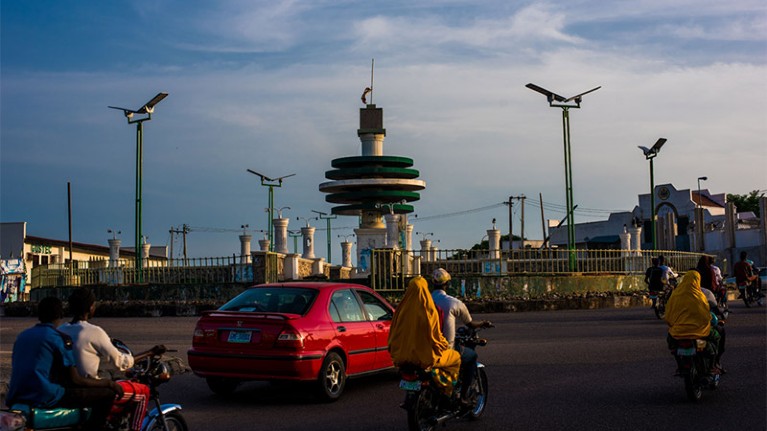[ad_1]

The Nigerian health ministry has been told to investigate reports of deaths in the northeastern state of Gombe (pictured).Credit: Tolu Owoeye/Shutterstock
The World Health Organization has confirmed that reports of an ‘unknown’ disease allegedly responsible for 30 deaths in Gombe State, Nigeria, in mid-February can be linked to 3 cases of meningitis that are part of ongoing seasonal outbreaks.
The agency tells Nature that it is aware of reports of dozens of fatalities, but that on investigation it has found there have in fact been just three, resulting from confirmed cases of meningitis.
Nigeria’s Centre for Disease Control and Prevention and the regional Africa Centres for Disease Control and Prevention have not confirmed or denied an unknown-disease outbreak in Gombe State. Neither organization responded to requests for comment from Nature’s news team.
The case highlights the importance of thorough disease-surveillance systems and the need for timely communication, say researchers. West African countries are on high alert for flare-ups of infectious diseases. Nigeria, the most populous African country and the one with the largest economy, is currently struggling with surges of Lassa fever, diphtheria and meningitis. In the past decade, it has also contended with spikes in cholera, mpox (formerly called monkeypox) and Ebola, as well as COVID-19. High mobility between countries in the region makes residents particularly susceptible to the rapid spread of infections, according to a 2022 study published in The Lancet1.
Unknown disease?
On 27 February, Nigeria’s National Assembly instructed the country’s health ministry to investigate a “strange disease” said to have killed more than two dozen people in the northeastern state of Gombe.
News of the deaths had come from an 18 February Facebook post regarding unexplained deaths at the Nafada General Hospital, said to have occurred within 24 hours of the victims contracting an unknown disease that caused abdominal pain, diarrhoea and fever.
But on 28 February, Gombe State commissioner of health Habu Dahiru denied the report of mystery deaths, according to local newspapers. “Formally, we received cases with symptoms suggestive of cerebrospinal meningitis in the Nafada local government area on 18 February and immediately swung into action,” he told media outlet Punch.
“The more specific and plainly described information is given about what is known and not known promotes confidence that the authorities are sincerely trying to give the best-quality information,” says Julii Brainard, who models public-health threats at the University of East Anglia in Norwich, UK.
“The void created by limiting or not giving the necessary fact-checked information can be filled by mis- or disinformation or rumours,” says Sílvia Majó-Vázquez, a political-communication researcher at the Free University of Amsterdam. It can be difficult to correct the false information once it is circulating, she adds.
Surveillance systems
Public-health bodies in the region are attuned to potential outbreaks, says Robert Garry, a virologist at Tulane University in New Orleans, Louisiana, who works with scientists in Sierra Leone and Nigeria.
“People are aware that viruses are of serious concern and need to be dealt with aggressively”, especially after the COVID-19 pandemic, he says. The 2014 Ebola outbreak was also a “wake-up call” to West African countries, Garry adds. Between 2013 and 2016, more than 11,000 people in Guinea, Liberia and Sierra Leone died of this viral haemorrhagic fever. Eight people in Nigeria died of the disease.
In the years since, “the Nigerian CDC put their best foot forward”, says Garry. “They’ve got a lot of good people there. They’re putting the appropriate resources into it.”
Virologist Peter Piot, former director of the London School of Hygiene & Tropical Medicine, agrees that there have been major efforts to improve disease surveillance in West African countries over the past decade. “The Nigerian Centres for Disease Control have done excellent work on Lassa and monkeypox,” he says. But he adds that in such a large country, surveillance can be “uneven”, and the system is constantly being tested. Last week, Yobe State — north of Gombe — quarantined more than 200 people after reports of 20 meningitis-related deaths in the province, Punch reported.
Trust between health authorities and citizens is vital, says Brainard. If people feel that authorities are hiding information or are clueless, “then people try to figure out their own explanations, which may be completely wrong”, she says.
[ad_2]
Source Article Link

